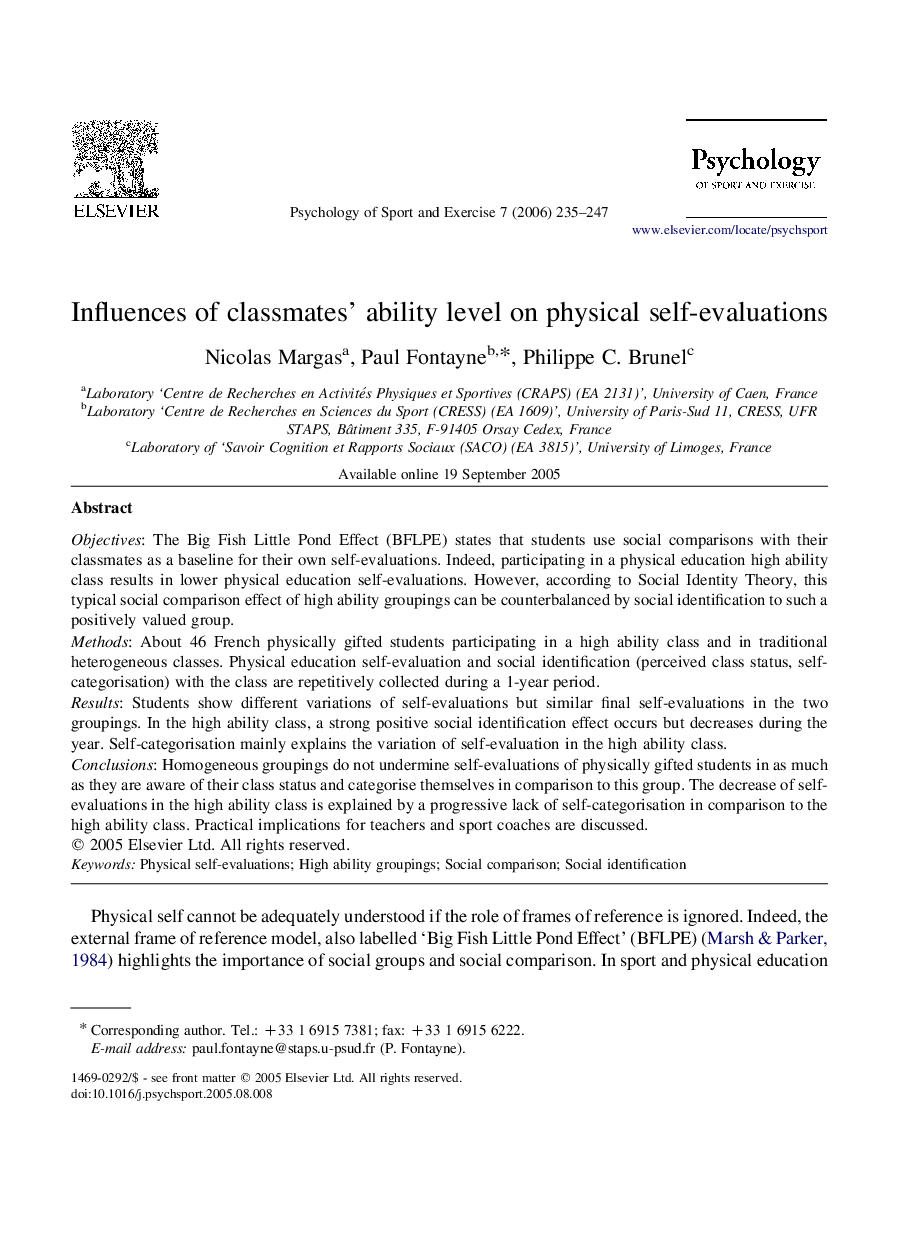| Article ID | Journal | Published Year | Pages | File Type |
|---|---|---|---|---|
| 894957 | Psychology of Sport and Exercise | 2006 | 13 Pages |
ObjectivesThe Big Fish Little Pond Effect (BFLPE) states that students use social comparisons with their classmates as a baseline for their own self-evaluations. Indeed, participating in a physical education high ability class results in lower physical education self-evaluations. However, according to Social Identity Theory, this typical social comparison effect of high ability groupings can be counterbalanced by social identification to such a positively valued group.MethodsAbout 46 French physically gifted students participating in a high ability class and in traditional heterogeneous classes. Physical education self-evaluation and social identification (perceived class status, self-categorisation) with the class are repetitively collected during a 1-year period.ResultsStudents show different variations of self-evaluations but similar final self-evaluations in the two groupings. In the high ability class, a strong positive social identification effect occurs but decreases during the year. Self-categorisation mainly explains the variation of self-evaluation in the high ability class.ConclusionsHomogeneous groupings do not undermine self-evaluations of physically gifted students in as much as they are aware of their class status and categorise themselves in comparison to this group. The decrease of self-evaluations in the high ability class is explained by a progressive lack of self-categorisation in comparison to the high ability class. Practical implications for teachers and sport coaches are discussed.
